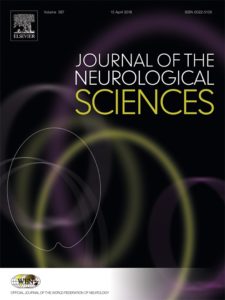Objective: Sleep deprivation has a negative effect on neurocognitive performance. The King-Devick test (KDT),which tests speed and accuracy of number-reading, requires integrity of saccades, visual processing, and cognition. This study investigated effects of sleep deprivation in on-call residents using KDT. Methods: A prospective cohort study was conducted among 80 residents. KDT was performed at the beginning and end of an overnight call shift for the residents in the experimental group. A control group was tested at the beginning of 2 consecutive day shifts. Estimates of hours of sleep, Karolinska Sleepiness Scale (KSS)(1=extremely alert, 9=extremely sleepy), and time and accuracy of KDT were recorded. Results: 42 residents were tested before and after overnight call shifts and 38 served as controls. Change in test time differed between the groups, with the experimental group performing 0.54(SD=4.0) seconds slower after their night on call and the control group performing 2.32(SD=3.0) seconds faster on the second day, p < 0.001. This difference was larger in surgical compared to medical residents. Conclusions: Sleep deprivation was inversely correlated with neurocognitive performance as measured by KDT, with more effect on surgical than medical residents. Further research could investigate whether this test could help determine fatigue level and ability to continue working after a long shift.
Summary Points:
- The K-D Test tests speed and accuracy of rapid number naming and requires saccadic integrity, visual processing, cognition, speech, and language. Especially relevant to this project, it requires intact saccadic eye movements which, in turn, require a fully functioning system of cortical structures working in tandem such as frontal eye fields and the dorsolateral prefrontal cortex. These may be prone to disruption and dysfunction from head trauma and sleep deprivation.
- The experimental group performed slower following their night on call, while the control group performed faster than their pre-test. This difference remained significant after adjustment for hours of sleep the night before the pre-test and for pre-test KDT scores. Adjusting for both variables together, there was a trend toward greater KDT score improvements for residents in the control group.
- Higher scores on the sleepiness scale prior to the pre-test were associated with more KDT score improvement in the post-test. Higher scores on the sleepiness scale in the post-test were associated with a worsening of the KDT score.
- Surgical residents in the experimental group had less improvement in KDT score time, slowing down on the post-test. In contrast, medical residents in the experimental group did not differ significantly in KDT score improvement from their control counterparts.
- The KDT is an effective metric for detecting changes in neurocognitive function
- Residents cognitive function can be evaluated by the K-D Test, a test that broadly assesses neurocognitive status and afferent/efferent vision and which has been used as a screening tool for certain impairments.

